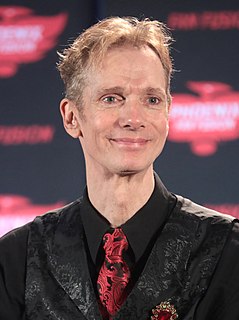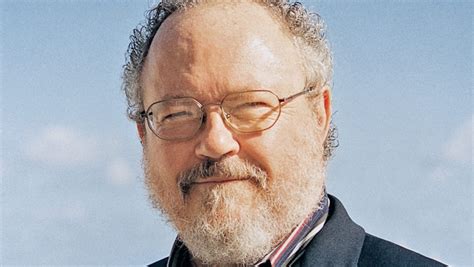A Quote by Paul Bloom
For the most part, people use "empathy" to mean everything good. For instance, many medical schools have courses in empathy. But if you look at what they mean, they just want medical students to be nicer to their patients, to listen to them, to respect them, to understand them. What's not to like? If they were really teaching empathy, then I'd say there is a world of problems there.
Related Quotes
Funny bones, to me, are more important than funny lines. If a comedian is just not likable and doing the lines, you could read them yourself. Whereas if someone [you like] shambles out, and they tell you what a bad day they've had, they don't have to say anything. I love them. I want to hug them because they've been through something. And it comes back to empathy, always empathy.
The world is full of what seem like intractable problems. Often we let that paralyze us. Instead, let is spur you to action. There are some people in the world that we can't help, but there are so many more that we can. So when you see a mother and her children suffering in another part of the world, don't look away. Look right at them. Let them break your heart, then let your empathy and your talents help you make a difference in the lives of others. Whether you volunteer every week or just a few times a year, your time and unique skills are invaluable.
My book is going to be called Against Empathy, which may give you a feeling for where my argument is going to go. Whenever I talk about this, I have to begin in the most boring of all possible ways: by defining my terms. By "empathy," some people mean everything that is good - compassion, kindness, warmth, love, being a mensch, changing the world - and I'm for all of those things. I'm not a monster.
The act of compassion begins with full attention, just as rapport does. You have to really see the person. If you see the person, then naturally, empathy arises. If you tune into the other person, you feel with them. If empathy arises, and if that person is in dire need, then empathic concern can come. You want to help them, and then that begins a compassionate act. So I'd say that compassion begins with attention.
When people want to inspire you to turn against some group of people, they'll often use empathy. When Obama wanted to bomb Syria, he drew our attention to the victims of chemical warfare. And in both of the Iraq wars, politicians said, "Look at the horrific things that are happening." I'm not a pacifist. I think the suffering of innocent people can be a catalyst for moral action. But empathy puts too much weight on the scale in favor of war. Empathy can really lead to violence.
The myth of writer as, like, Asperger-style misanthrope, or, like, the Jack Nicholson, 'As Good As It Gets' - it just doesn't work, because writers, in order to write good characters, need to understand people. You need to understand your audience. You need to have so much empathy you could almost encourage empathy in others.
Empathy is a human trait. But lots of humans exercise some traits more energetically than others. By "the usefulness of empathy" I mean the way in which a progressive might claim that empathy is a crucial aspect of any benign political system, and the way a conservative might argue that not only is it not necessary, but it might not even be all that helpful, in that regard.
The only way we really create change is to enter any situation with the humility to listen and to recognize the world as it is, and then the audacity to dream what it could be, to have the patience to start and let the work teach you, to be willing to lead when you need to lead, and to listen. To have a sense of generosity and empathy, but not over-empathy, because accountability is so critical to building solutions that work.


































